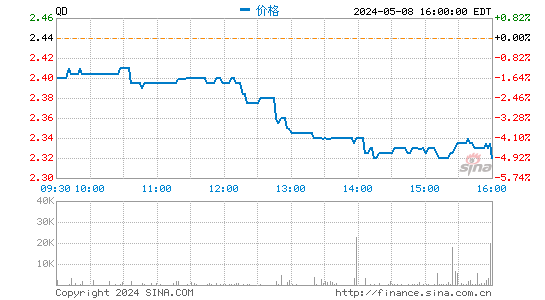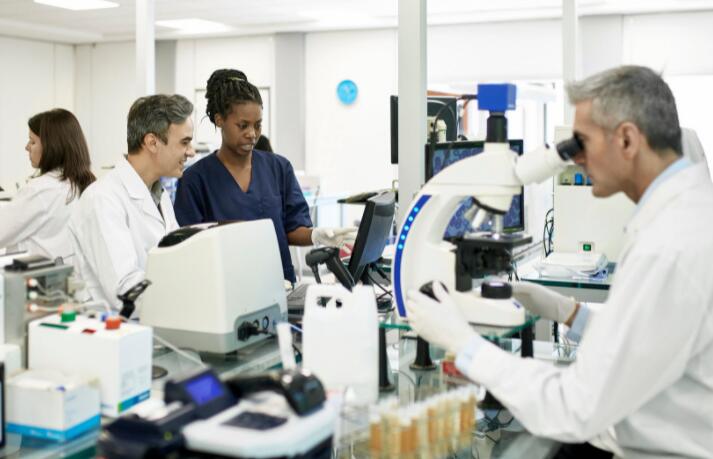
来源:比尔盖茨微信公众号
The great epidemiologist Larry Brilliant once said that “outbreaks are inevitable, but pandemics are optional.” I thought about this quote and what it reveals about the COVID-19 pandemic often while I was working on my new book.
著名流行病学家拉里·布里连特(Larry Brilliant)曾说,“疫情暴发无法避免,但大流行可以防范。”在写新书时,我经常思考这句话以及它对于新冠大流行的启示。
On the one hand, it’s disheartening to imagine how much loss and suffering could’ve been avoided if we’d only made better choices. We are now more than two years into the pandemic. The world did not prioritize global health until it was too late, and the result has been catastrophic. Countries failed to prepare for pandemics, rich countries reduced funding for R&D, and most governments failed to strengthen their health systems. Although we’re finally reaching the light at the end of the tunnel, COVID still kills several thousand people every day.
一方面,我们当初只需要做出更好的选择就可以避免很多损失与痛苦,想到这里着实令人沮丧。现在,我们受困于大流行已逾两年。在造成不可挽回的后果之前,世界并没有优先考虑过全球健康问题,而结果是灾难性的。各国未能为大流行做好准备,富裕国家减少了研发资金,大多数政府未能加强其卫生系统。尽管我们终于要看到希望的曙光了,但每天仍有数千人死于新冠肺炎。

On the other hand, Dr. Brilliant’s quote makes me feel hopeful. No one wants to live through this again—and we don’t have to. Outbreaks are inevitable, but pandemics are optional. The world doesn’t need to live in fear of the next pandemic.If we make key investments that benefit everyone, COVID-19 could be the last pandemic ever.
另一方面,布里连特博士的这句话让我充满希望。没有人想要再一次经历大流行病——而我们也不必如此。疫情暴发无法避免,但大流行可以防范。世界不需要生活在对下一次大流行病的恐惧之中。如果我们做出有利于每个人的关键投资,新冠肺炎就可能成为最后的大流行病。
This idea is what my book,How to Prevent the Next Pandemic, is all about. I’ve been part of the effort to stop COVID since the early days of the outbreak, working together with experts from inside and out of the Gates Foundation who have been fighting infectious diseases for decades. I’m excited to share what I"ve learned along the way, because our experience with COVID gives us a clear pathway for how to be ready next time.
这就是我的新书《如何预防下一次大流行》要讲的内容。从新冠疫情暴发之初起,我就一直致力于抗击疫情,并与盖茨基金会和外部抗击传染病数十载的专家们一起工作。我很高兴能与大家分享一路走来的经验,应对新冠肺炎的宝贵经验为我们如何做好准备应对下一次的大流行病指出了一条明路。
So, how do we do it? In my book, I explainthe steps we need to take to get ready. Together, they add up to a plan for eliminating the pandemic as a threat to humanity. These steps—alongside the remarkable progress we’ve already made over the last two years in creating new tools and understanding infectious diseases—will reduce the chance that anyone has to live through another COVID.
那么,我们该如何做呢?在我的书中,我解释了做好准备所需采取的具体步骤。完成这些步骤就会形成一个消除大流行病对人类威胁的计划。这些步骤,加上过去两年我们在创造新工具和了解传染病方面已经取得的显著进展,将减少人类经历另一次大流行病的可能性。
Imagine a scenario like this: A concerning outbreak is rapidly identified by local public health agencies, which function effectively in even the world’s poorest countries. Anything out of the ordinary is shared with scientists for study, and the information is uploaded to a global database monitored by a dedicated team.
想象一下这样的场景:地方公共卫生机构迅速识别出“有可能暴发的疫情”,即使在世界上最贫穷的国家,这些机构也能有效运作。任何异常情况都会与科学家分享以便其进行研究,信息也会被上传到一个由专门团队监测的全球数据库中。
If a threat is detected, governments sound the alarm and initiate public recommendations for travel, social distancing, and emergency planning. They start using the blunt tools that are already on hand, such as quarantines, antivirals that protect against almost any strain, and tests that can be performed anywhere.
如果检测到威胁,政府就会发出警报,并针对旅行、社交距离和应急计划对公众提出建议。政府会开始使用已经掌握的工具,如隔离、能抵抗绝大部分毒株的抗病毒药物,以及可以在任何地方进行的检测。
If this isn’t sufficient, then the world’s innovators immediately get to work developing new tests, treatments, and vaccines. Diagnostics in particular ramp up extremely fast so that large numbers of people can be tested in a short time. New drugs and vaccines are approved quickly, because we’ve agreed ahead of time on how to run trials safely and share the results. Once they’re ready to go into production, manufacturing gears up right away because factories are already in place and approved.
如果这还不够,那么全世界的创新者就会立即着手开发新的检测和治疗方法以及疫苗。尤其是诊断的速度会极快,以便在短时间内对大量人群进行检测。由于我们已经提前就如何安全进行试验和分享结果达成了一致,新药和疫苗会很快得到批准。一旦它们准备好就会立即投入生产,因为工厂已经就位并已获批。
No one gets left behind, because we’ve already worked out how to rapidly make enough vaccines for everyone. Everything gets where it’s supposed to, when it’s supposed to, because we’ve set up systems to get products delivered all the way to the patient. Communications about the situation are clear and avoid panic.
没有人会掉队,因为我们已经研究出如何快速生产足够的疫苗,供每一个人使用。由于我们已经建立了将药品直接送达至患者的体系,所有物资都会在正确的时间送到正确的地点。关于情况的沟通是清晰明了的,从而避免恐慌。
And this all happens quickly. The goal is to contain outbreaks within the first 100 days before they ever have the chance to spread around the world. If we had stopped the COVID pandemic before 100 days, we could’ve saved over 98 percent of the lives lost.
而这一切都会很快发生。我们的目标是在暴发后的100天内控制疫情,使其没有机会扩散到世界各地。如果这次我们在疫情暴发100天之内就阻止了新冠肺炎,我们本可以挽救超过98%逝去的生命。

I hope people who read the book come away with a sense that ending the threat of pandemics forever is a realistic, achievable, and essential goal. I believe this is something that everyone—whether you’re an epidemiologist, a policymaker, or just someone who’s exhausted from the last two years–should care about.
我希望读了这本书的人都能感受到,永远消除大流行病的威胁是一个现实的,可以实现的且必要的目标。我相信这是每个人都应该关心的事情——无论你是流行病学家、政策制定者,还是一个在过去两年内(因新冠)心力交瘁的人。
The best part is we have an opportunity to not just stop things from getting worse but to make them better. Even when we’re not facing an active outbreak, the steps we can take to prevent the next pandemic will also make people healthier, save lives, and shrink the health gap between the rich and the poor. The tools that stop an outbreak can also help us find and treat more HIV cases. They can protect more children from deadly diseases like malaria, and they can give more people around the world access to high quality care.
最重要的一点是,我们不仅有机会阻止事情变得更糟,还有机会让生活变得更好。即使没有活跃的疫情,我们也可以采取措施预防下一次大流行病,这些措施将使人们更加健康,并可以拯救生命,弥合贫富之间的健康差距。阻止疫情暴发的工具也可以帮助我们发现和治疗更多的艾滋病病例。这些工具也可以保护更多儿童免受疟疾等致命疾病的伤害,还可以让世界各地更多的人获得优质护理。
Shrinking the health gap was the life’s work ofmy friend Paul Farmer, who tragically died in his sleep in February. That’s why I’m dedicating my proceeds from this book to his organizationPartners in Health, which provides amazing health care to people in some of the poorest countries in the world. I will miss Paul deeply, but I am comforted by the knowledge that his influence will be felt for decades to come.
我的朋友保罗·法默(Paul Farmer)毕生致力于弥合健康差距的事业,他于今年2月在睡梦中与世长辞。这也正是我要把这本书的收益捐赠给他创立的组织“健康伙伴”的原因,该组织为世界上一些最贫穷国家的人们提供了令人惊叹的医疗保健服务。我深切地怀念保罗,令我感到安慰的是,我知道他的影响力将在未来几十年内持续下去。
If there’s one thing the world has learned over the last two years, it’s that we can’t keep living with the threat of another variant—or another pathogen—hanging over our heads. This is a pivotal moment. There is more momentum than ever before to stop pandemics forever. No one who lived through COVID will ever forget it. Just like a war can change the way a generation looks at the world, COVID has changed the way we see the world.
如果说世界从过去两年中学到了什么,那就是我们绝不能一直生活在另一种病毒变体(或另一种病原体)随时可能出现的威胁之下。现在是一个关键时刻,永远消除大流行病的势头比以往任何时候都更为强劲。经历过新冠疫情的人都不会忘记它。正如一场战争可以改变一代人看待世界的方式一样,新冠疫情也改变了我们看待世界的方式。
Although it may not always feel like it, we have made tremendous progress over the last two years. New tools will let us respond faster next time, and new capabilities have made us better prepared to fight deadly pathogens. The world wasn’t ready for COVID, but we can choose to be ready next time.
尽管感觉可能并不总是如此,但我们在过去两年内取得了巨大的进展。新的工具将使我们下一次更快速地做出反应,新的能力也会让我们准备更为充分以抗击致命的病原体。世界没有为新冠肺炎做好准备,但我们可以选择为下一次做好准备。
























